The woman whose mum inspired her to track ethical food
- Published
The woman using blockchain technology to prove where food comes from
Jessi Baker thanks her mother for the inspiration to start her company, Provenance.
Set up just a few years ago, Provenance says it is lighting a fire under the retail world.
The company is based on an app that allows retailers and customers to see where a product comes from, from its origins to its point of sale.
"Behind every product is a complex chain of people and places and that's a really important part of why people buy things," Ms Baker explains.
"Provenance is all about making that information transparent to shoppers but also to businesses all along the supply chain."
Jessi and Jenny
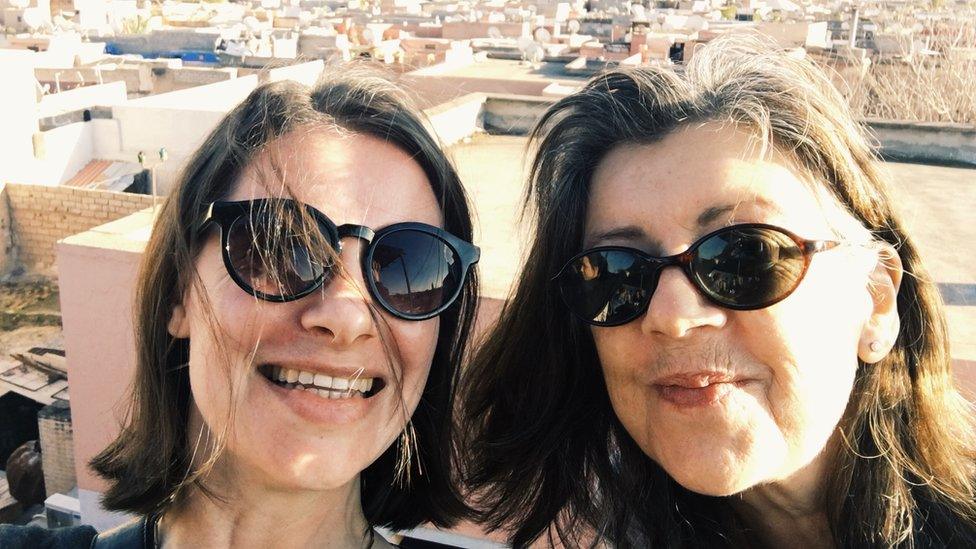
Jessi Baker with her mother Jenny who inspired her business
But it began with her mother Jenny.
"She's a pioneer of conscious consumption," Ms Baker says.
"She raised me, my brother and sister, to care about what we eat and buy, but also helped us understand from an early age where things come from.
"For a long time, I think most of our meals came from under one mile from our home in Wiltshire, vegetables from the garden and animal products from our neighbour's farm."
While training to be a manufacturing engineer, Ms Baker visited dozens of supply chains to see how different products were sourced and created. But the breakthrough came in 2013, when she was studying for a PhD in computer science and started to look into the emerging blockchain technology.
"You can think of a blockchain," Ms Baker says, "as a shared data system that everyone can use in order to be able to trust information. What it's allowed us to do is to have a shared system of record that nobody can tamper with and everybody can see."
Provenance uses this technology to log and store every stage of a supply chain in a way that anyone can access.
Student project to global ambition
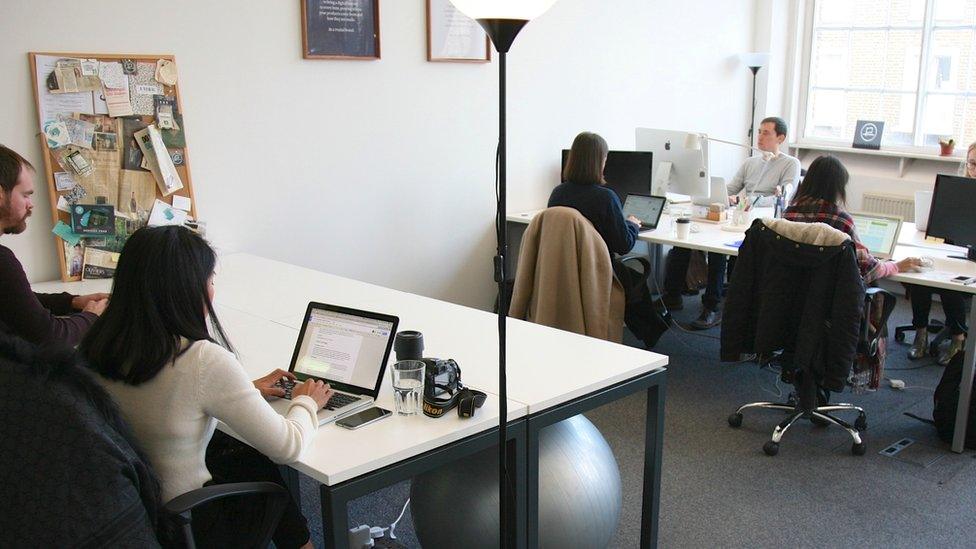
Provenance has staff in four countries around the world
Now the company, which started as a part-time interest while Ms Baker was studying, has become a full-time business. She has put her PhD on hold, as she's busy running a company with 10 staff based in four countries: the UK, the US, France and Germany.
"We have no physical things apart from our laptops," Ms Baker points out. "So we can move the team wherever we want to around the world."
The company started out working with small brands and, in July 2016, signed its first commercial client, the UK's fifth largest food and grocery retailer, the Co-op. Provenance is now helping the Co-op track fresh products through its supply chains.
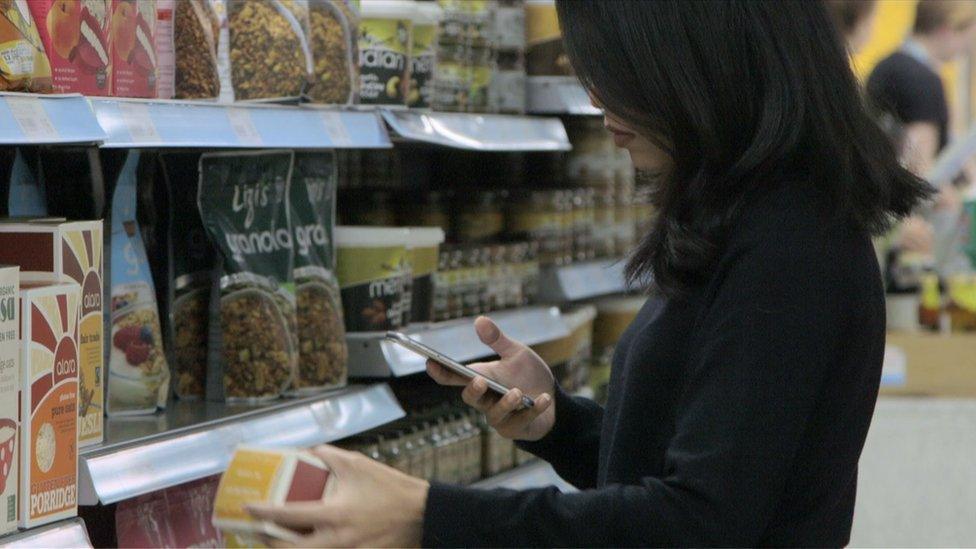
Customers can check the supply chain of a product on their phones in a shop using Provenance
"We've attracted lots of pioneering food and drinks businesses," Ms Baker says.
"It's as much about reassuring businesses that they are selling things that are correct and trustworthy as it is about consumers being able to understand that as well."
Fishy business
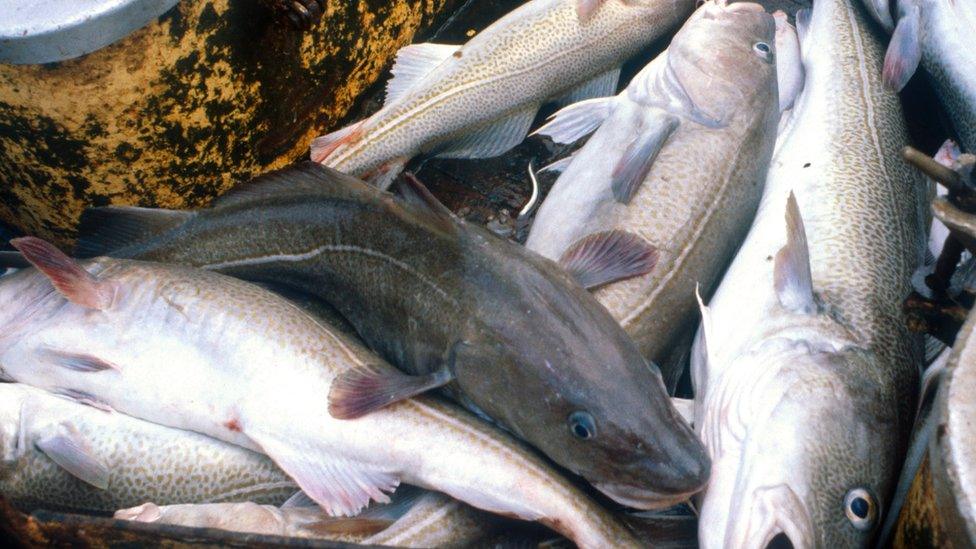
Provenance is built to tackle fraudulent claims about the ethical sourcing of products such as fish
Provenance's first victory for sourcing ethical products came with a humble fish.
In early 2016 in Indonesia, Provenance tracked the first fish on the blockchain.
Working with a non-governmental organisation to certify a socially sustainable catch of fish, the company in effect created a digital passport for the fish.
Provenance has now set up partnerships with tagging, DNA scanning and digital imaging companies to strengthen the connections between physical products and their digitised claims.
As well as fish, Provenance now tracks other foods, such as eggs and dairy. It says that lots of products, not just food, can be tracked and sourced in this way.
Blockchain beginnings
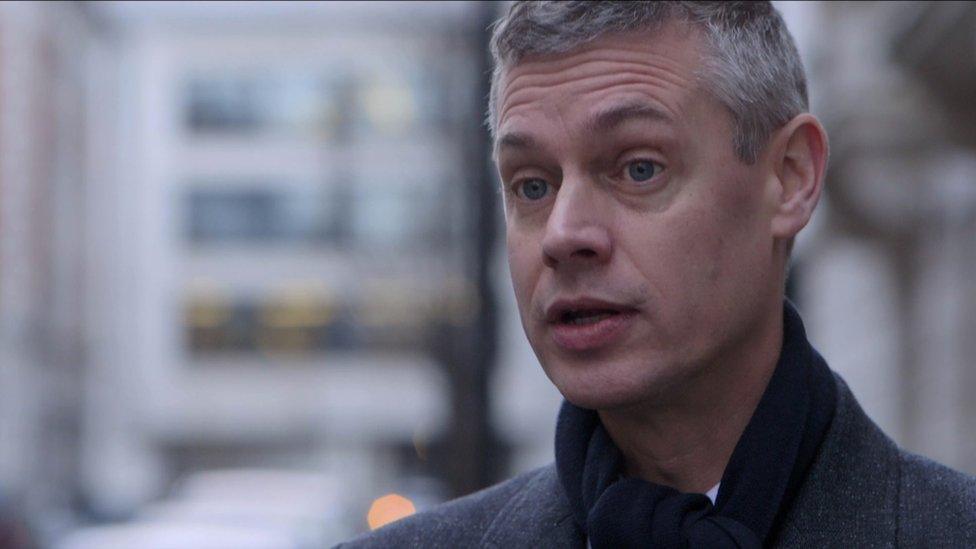
Chris Haley of Nesta says that blockchain technology is still immature
But Ms Baker admits that there are still some issues with the scaling up of the technology.
"We're on the bleeding edge of a new technology and occasionally having to wait for it to get developed a bit more in order to be able to develop on top of it," she says.
Another problem is the reputation of blockchains.
"The main challenge for Provenance is that it's being built upon a technology that is relatively immature," says Chris Haley, an analyst from innovation specialist, Nesta.
Karishma Vaswani takes a look at blockchain and explains how it works
"There are still some risks that are unclear, but we're beginning to see blockchains being used in really quite a wide variety of applications. It is potentially a much simpler way of transacting." he says.
But Ms Baker has a long-term vision.
"We are disruptive and we're trying to disrupt the industry for good." she says.
"The ultimate goal of Provenance is that one day it will be impossible to buy a product that compromises your health and morals. Businesses that have very opaque supply chains and are not taking active steps to make them transparent should really fear us."